
Microdosing CBD: Helpful Practice Or Passing Trend?
Is it possible to microdose CBD? Maybe, but even if it is, it's hard to say what a microdose would actually be, and what effects it might have. Read on as we separate the facts from the fluff regarding microdosing cannabidiol.
Popular culture would have you believe that you can microdose basically everything these days. But what about CBD? This cannabinoid is undoubtedly very interesting and demonstrates a wealth of potential, but as yet, hard evidence about doing guidelines hasn't been pinned down. What’s more, as this compound is non-psychotropic, it’s hard to determine a sub-perceptual dose—a key distinction between a microdose and a regular dose.
All this leads us to ask if microdosing CBD is a viable practice, and how you might go about doing it.
What is CBD?
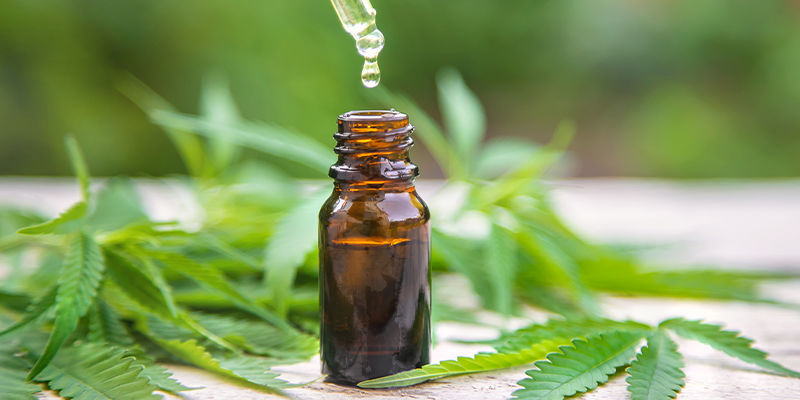
Cannabidiol (CBD) is one of over one hundred phytocannabinoids present in the cannabis plant. Phytocannabinoids—cannabinoids produced in plants—are able to interact with the body’s own endocannabinoid system (ECS). Some cannabinoids, such as THC, provoke psychotropic effects and cause a high. Others, such as CBD, are non-psychotropic but still exhibit a range of mental and physical effects.
It is unclear exactly how CBD interacts with the body, as it doesn’t have a great affinity to either of the main CB receptors (CB1 and CB2). Rather, it seems that it works in part via the vanilloid receptor TRPV1 (which some now call CB3), and also by inhibiting fatty acid amide hydrolase (FAAH), an enzyme that breaks down anandamide.
Anandamide is an endocannabinoid—a cannabinoid produced in the body—and is known as the “bliss molecule”. Binding mostly to CB1 receptors, it causes feelings of euphoria, calmness, and well-being. As such, it is suspected that CBD might increase concentrations of anandamide by inhibiting its breakdown, thereby increasing its effects.
Are there benefits to microdosing CBD?
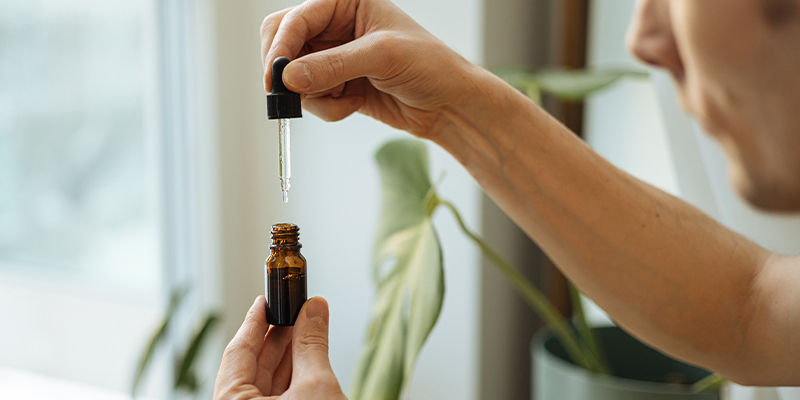
It’s hard to pin down the benefits of microdosing CBD. Though there is little hard evidence about the benefits of microdosing any drug, it becomes even more scant (to the point of being nonexistent) when talking about CBD.
For one, a key tenet of microdosing drugs is taking a sub-perceptual dose; i.e. a dose so small that you can’t feel any effects. With drugs such as psilocybin, LSD, or even THC, this is done in order to avoid tripping or getting high, as microdosing is about benefitting from the more holistic effects of a given drug. The issue is that, for the most part, CBD’s effects are sub-perceptual anyway, even at higher doses. While it is true that you can sometimes perceive the effects of CBD in terms of energy level and mood, this is distinct from feeling “high”.
Furthermore, even conventional CBD dosing recommendations aren't based on much evidence. CBD gummies tend to contain 5–10mg of CBD per dose, as do CBD oils, tinctures, and capsules. Medical studies sometimes use up to 500mg or even more CBD in a single dose, and have discovered no adverse effects at these doses. Indeed, many of the potential benefits associated with CBD are claimed to be observed at relatively high doses. Given that, it’s quite reasonable to claim that what most people consider to be a regular dose of CBD could accurately be deemed a microdose.
What’s more, one of the main reasons people choose to microdose CBD is to deliver a steady stream of the cannabinoid into the system throughout the day. However, CBD is shown to have a very good safety profile, and some people take higher doses multiple times a day, apparently without experiencing negative effects. As such, it’s hard to say that there are any benefits to microdosing CBD.
But that’s not to say that people can’t benefit from taking small doses of CBD—it’s just about figuring out what works for you. Pinning the label of microdosing on it, though, reduces this term to something almost meaningless.
One sensible piece of logic around microdosing CBD is that it might be better to take numerous smaller doses, rather than fewer larger doses, as this means that levels of CBD in your body will stay more constant, rather than rising and falling multiple times a day. It’s unclear whether this has any benefits, but it’s not unlikely that it may.
Should you microdose CBD?
As might be clear, there’s little reason to microdose CBD as opposed to taking conventional doses. There are posts circulating the internet that claim to give instructions for microdosing, but they mostly appear to be fairly arbitrary guidelines peppered with unlikely claims.
But if you choose to take CBD, you should by all means experiment with dosing. This doesn’t mean pushing doses as high as possible, but finding out what the lowest possible effective dose could be for you. There’s good reason to assume that taking the smallest possible dose of a drug is probably best, for all manner of reasons.
While CBD appears to be generally safe, it’s still worth acting with caution and restraint when using this substance. So, pushing your dose down as low as it can go while still getting the effects you’re after can only benefit you—and your bank account!
How to microdose CBD
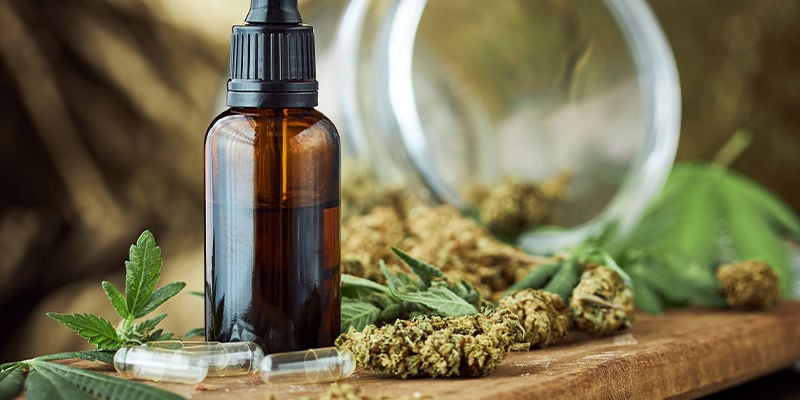
As mentioned, there is no clear guideline for microdosing CBD. In terms of what dose works for you, you’ll really need to experiment and see. For some people, multiple doses of as little as 2.5mg a day might result in desired effects. For others, much more than this might be necessary.
Proponents of microdosing CBD (if they exist outside of blogs) suggest taking small doses of CBD several times a day. Some say as few as four times a day, while others would suggest taking it ten times a day. The rationale for taking many small doses is fairly unclear; some sites claim that “the goal of microdosing is to feed your body a steady stream of plant cannabinoids so it can begin producing more inner cannabinoids over time”. But it seems that the evidence behind claims like this are nonexistent.
That said, evidence shows that different CBD consumption methods can affect the nature and duration of effects exhibited by cannabinoids, and thus may require different dosing practices. Still, it doesn’t appear necessary, or convenient, to take CBD, say, ten times a day.
CBD oil
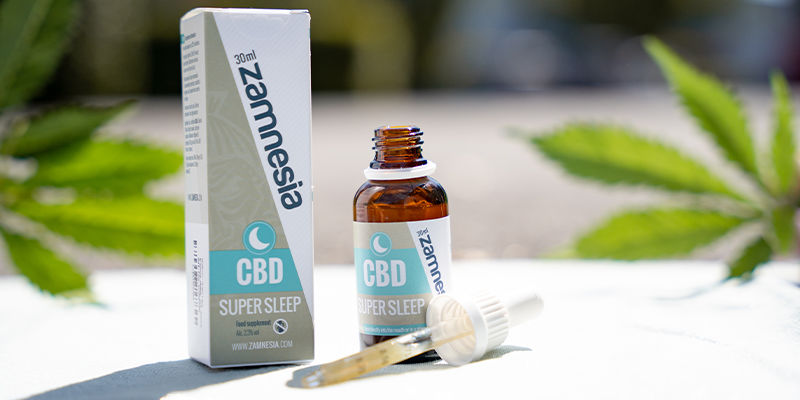
CBD oil is one of the most popular means of consuming CBD. Oil can be dropped beneath the tongue and absorbed through the mucous membrane, or it can be added to food/drink and absorbed through the stomach and liver.
CBD oil begins to take effect within 15–120 minutes depending on the consumption method. The duration of effects is partially dependent on the dose, but can last up to six hours.
CBD capsules
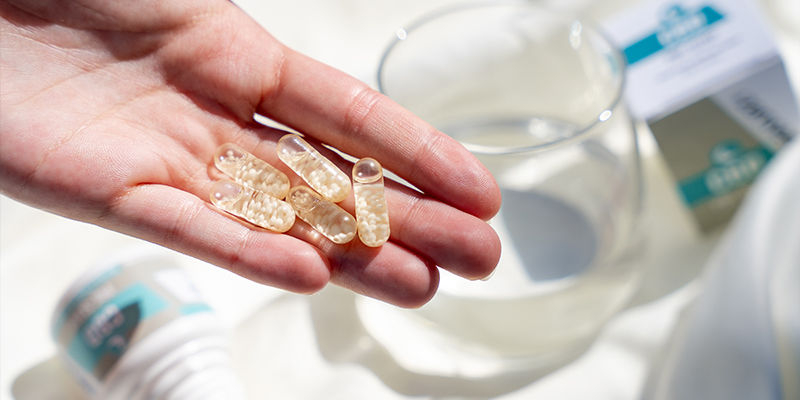
CBD capsules are a convenient ingestion method as they can simply be swallowed and then forgotten about. If you take other food supplements, then you can just include CBD capsules in your daily regimen.
Plus, the effects of capsules tend to last a little longer than oil—up to around 8 hours—making them great for people who want to re-dose as little as possible, or who want to benefit from CBD during sleep.
CBD edibles
CBD edibles, such as gummies, taste great and can be taken anywhere without attracting attention. As with capsules, they can last up to 8 hours, making them helpful for those who don’t want to take them very often.
CBD gummies tend to contain small amounts of CBD by default, so they are a good option for those who wish to take smaller doses or “microdose”.
CBD flower
Smoking CBD flower is a good option for those looking to transition from THC-rich cannabis. Plus, it adds an element of ritual missing from the other consumption methods. The downside is that it comes with all the health risks of smoking.
Smoking CBD has the fastest onset—almost immediate—and the greatest brevity, with effects lasting up to four hours. This makes it a good option for those who want a fast-acting method, but a less viable option for those who want to dose and forget about it.
Smoking may be a suitable method for individuals who want to “microdose” CBD, as you could simply take one or two hits at a time throughout the day.
CBD oil vs CBD capsules for microdosing
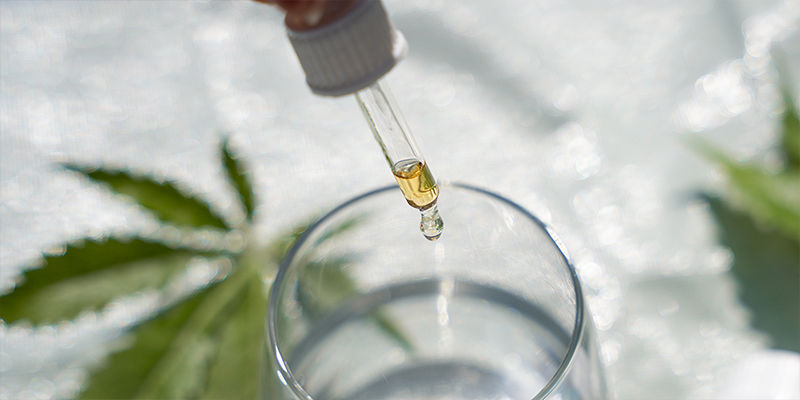
If you want to take very small doses, then CBD oil is a better option as you can dose it more accurately. CBD capsules come with predetermined amounts of CBD in them, and you can’t really reduce these, whereas a single drop of CBD oil usually contains very little of the active ingredient, making it perfect for those who want to really fine-tune their dose.
Potential risks of microdosing CBD
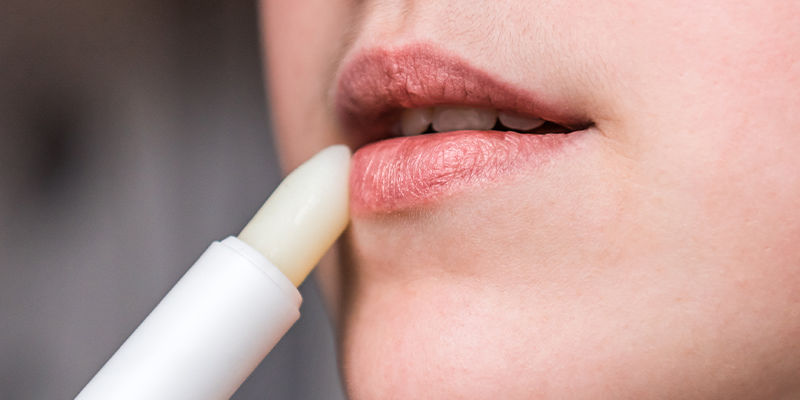
The risks of taking very small doses of CBD are few. However, there are some side effects associated with taking CBD that should always be considered:
- Nausea
- Fatigue
- Dry mouth
- Potential to interact with other medication
Microdosing CBD: A misuse of the term?
While it’s possible to take particularly small doses of CBD, it’s probably inaccurate to call these microdoses. One reason for this is that little is known about CBD dosing, so it’s hard to say what differentiates a microdose from a regular dose or “macrodose”. Furthermore, as CBD is non-psychotropic, it’s hard to choose a meaningful threshold below which a dose is considered “micro”.
Still, there are good reasons to seek out using small amounts of CBD. One simple reason is that it’s generally good to take as little of a drug as possible. Another is that it might be beneficial to take more frequent doses so that the levels of CBD in your body don’t peak and trough so much. Even so, there’s no immediate reason to do this with particularly small doses.
Much of the talk surrounding CBD microdosing is likely little more than jumping in on a trend. That’s not to say that microdosing is without value, only that in the case of CBD, we know too little to say what benefits microdosing might have.
-
 4 min
September 7, 2023
CBD And Sleep: How CBD May Improve Sleep Quality
CBD is a very popular wellness supplement, especially in relation to sleep. But how does it work, and how should you use it? In this article, we examine what we know about the relationship between...
4 min
September 7, 2023
CBD And Sleep: How CBD May Improve Sleep Quality
CBD is a very popular wellness supplement, especially in relation to sleep. But how does it work, and how should you use it? In this article, we examine what we know about the relationship between...
-
 4 min
July 28, 2023
Microdosing Mescaline: What You Need To Know
Microdosing is all the rage, and people are trying it with more and more drugs. Here, we look at microdosing a drug with a long history of usage—mescaline!
4 min
July 28, 2023
Microdosing Mescaline: What You Need To Know
Microdosing is all the rage, and people are trying it with more and more drugs. Here, we look at microdosing a drug with a long history of usage—mescaline!
-
 4 min
March 14, 2023
Microdosing DMT: An Overview
DMT microdosing is fairly uncommon, though more and more people are trying it. There is little science one way or another to support it as a practice. Here, we look into what we know.
4 min
March 14, 2023
Microdosing DMT: An Overview
DMT microdosing is fairly uncommon, though more and more people are trying it. There is little science one way or another to support it as a practice. Here, we look into what we know.
-
 4 min
August 6, 2021
How To Use CBD: Which CBD Product Is Right For You?
CBD is becoming an increasingly popular dietary supplement, yet for the unfamiliar, knowing the most suitable way to take CBD can be a challenge.
4 min
August 6, 2021
How To Use CBD: Which CBD Product Is Right For You?
CBD is becoming an increasingly popular dietary supplement, yet for the unfamiliar, knowing the most suitable way to take CBD can be a challenge.











 United States
United States








